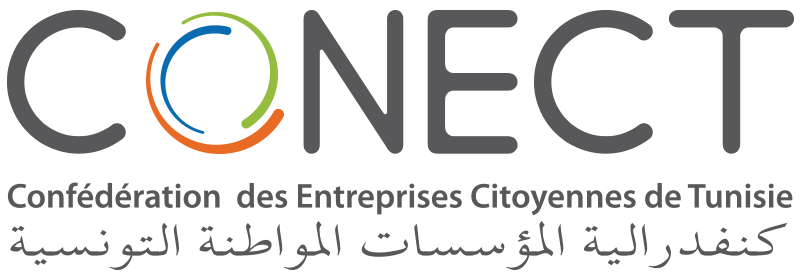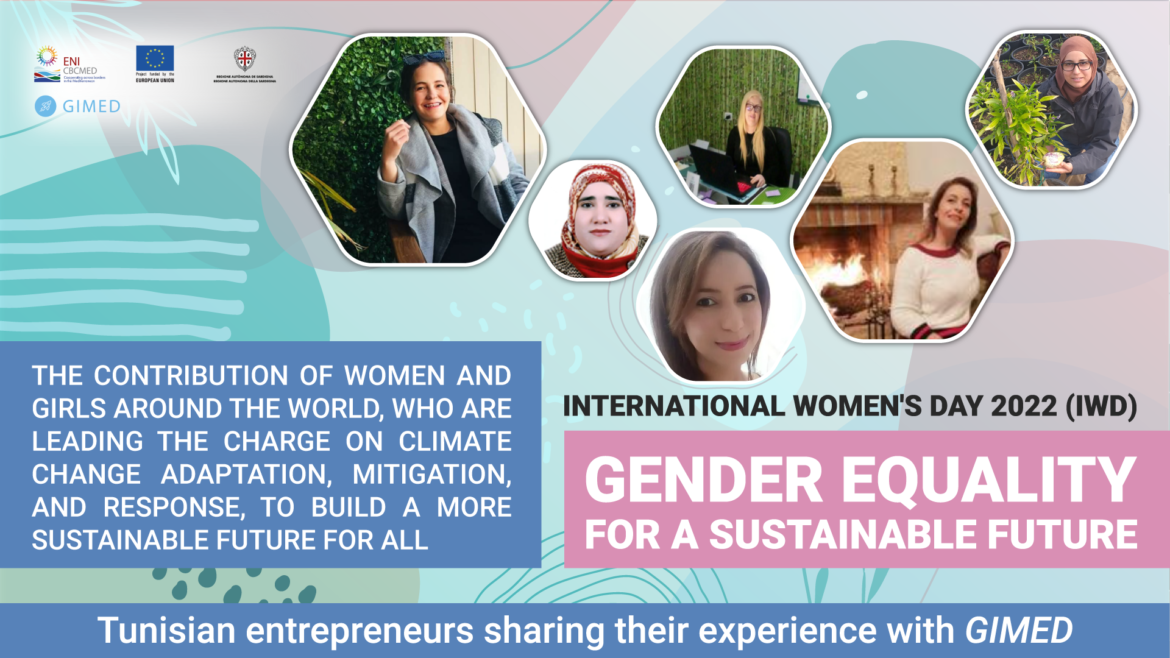GIMED project (GIMED) has joined the International Women’s Day 2022 (IWD2022), a worldwide campaign honoring women’s social, economic, cultural, and political achievements. On the occasion of the IWD2022, GIMED has launched a visual campaign to recognise the contribution of women across the Mediterranean. GIMED project is seeking the development of a green economy in the Mediterranean are to combat environmental degradation. It specially focuses on young graduates and women entrepreneurs, who are three times less likely to be employed than men.
Yesterday GIMED presented a series of testimonials from Lebanon, Italy, Palestine and Egypt. Today, GIMED is pleased to provide six portraits highlighting the efforts of women in Tunisia, one of the implementing countries across the Mediterranean. How female entrepreneurs are leading the change towards a more sustainable tomorrow? Let’s claim for gender equality and get to know our selected female entrepreneurs!
Meet the Tunisian female entrepreneurs
Hanna Gharbi (CEO of Henchir El Bey): She has contributed to Mkachbia region in Béja by being one of the leaders of eco-tourism, organic farming and creating jobs for rural women. She has claimed that the major challenges that she faces as a woman entrepreneur are the lack of sharing information and social differences and wealth creation for the region.
Fardi Yosra (Biotechnologist and Young Entrepreneur at Ferme pour Alimentation Riche Durable Indoor “FARDI”): Yosra stated that for a better sustainable development, she is implementing resilient agricultural practices that increase productivity and production. Her hydroponic project is also building capacity to adapt to climate change, extreme weather events and droughts. As for the challenges that she is facing as a young female entrepreneur she says there is a social stigma, multiple societal responsibilities, lack of recognition and networking and lack of financial support.
Bayoudh Inés (Young eco-entrepreneur of the start-up Eco-Act): She aims to put a well-directed strategy to mitigate anthropogenic climate change through Internet of Things software. This technology will help companies reduce their carbon footprints and spread the notion of circular economy and environmental protection to the community. The main challenges that Ines is facing throughout her journey are the lack of time, as she found it very difficult to reconcile work and personal, and also access to funding.
Salma Ben Salah (Founder of CAMINOVA). Ben Salah is a young entrepreneur with a PhD in Biological Sciences. Salma contributes to sustainable economic growth by transforming university technologies into business opportunities, which is a regional development force through the creation of highly skilled jobs. As a female entrepreneur, she summarized the main challenges in two main points: low integration in business networks as often considered unable to manage a project on its own, and lack of access to finance banning opportunities to encourage women entrepreneurs in Tunisia.
Makki Chaima (Entrepreneur behind Pépinière Khemir): Chaima seeks for a better sustainable development by conservation of nature and the environment through biological plants and organizing cleaning campaigns in municipalities and forests to eliminate harmful waste. One of the main challenges that Chaima has faced as an entrepreneur was trying to convince peasants of using biological plants and move away from chemical fertilizers to preserve green land and good health.
Ben Youssef Maryem (Entrepreneur behind ‘Cheese ferme de soleil’): Maryem believes that for a better sustainable development growth we need to work on Mediterranean culture as an art of being in an ecological environment. Maryem also shared the threads that she faced as a female entrepreneur, from balancing the demands of life and work to the lack of equal opportunities in certain sectors.




